This flexible, affordable and scalable online training program ensures cooks excel in your kitchen – and in their career.
Attract, develop and retain a qualified team.
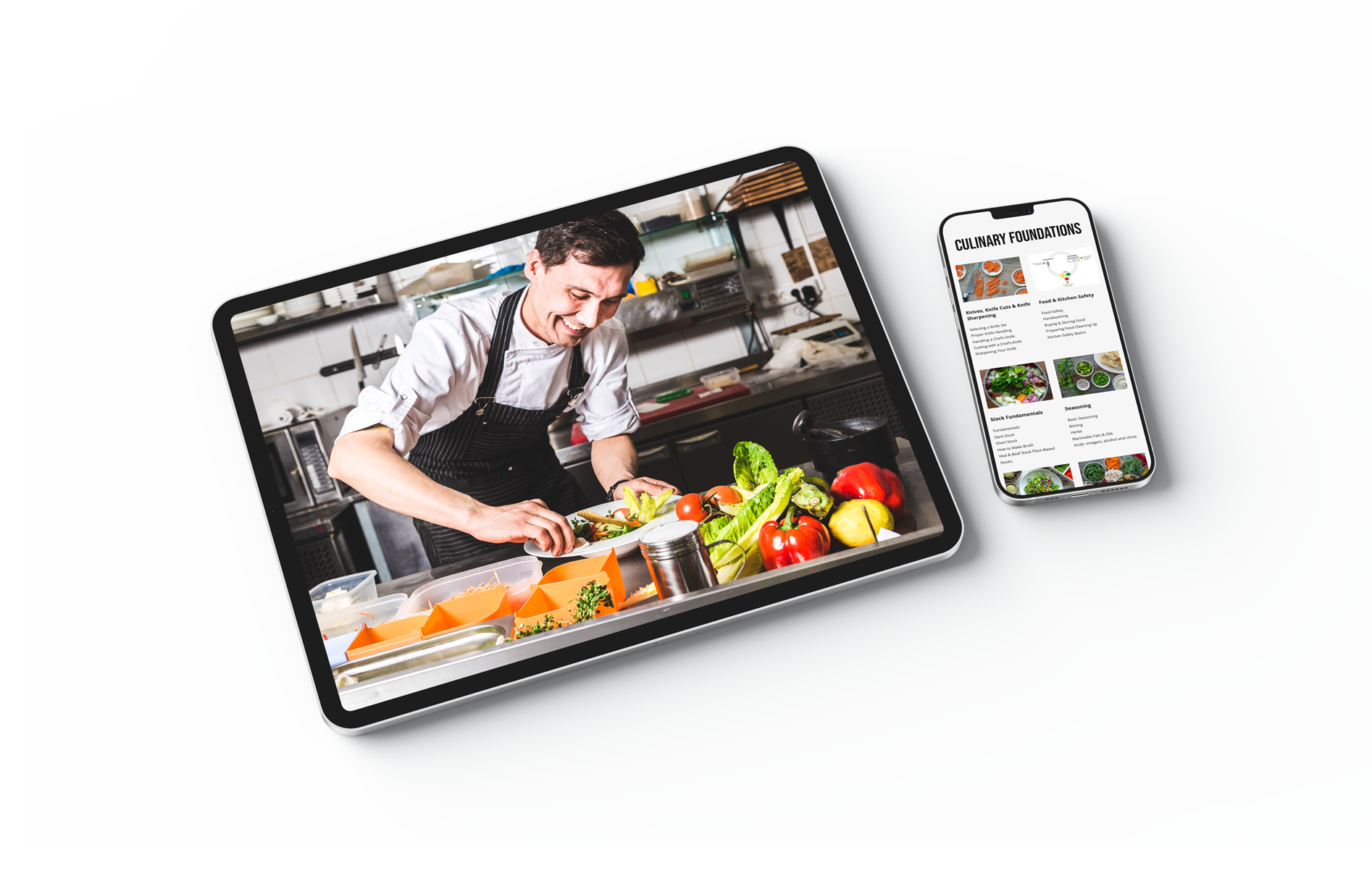
Rouxbe is trusted by clients and students around the world
1M
Students
180
Countries
15+
Years of Experience
2000
Professional Kitchens
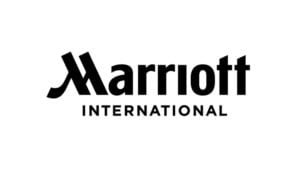
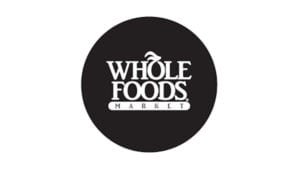
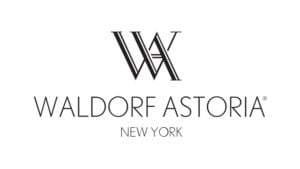
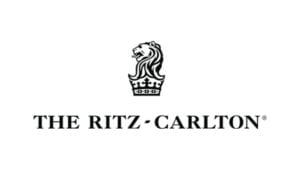
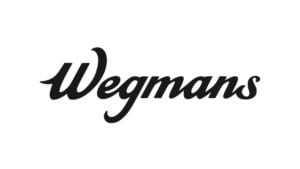


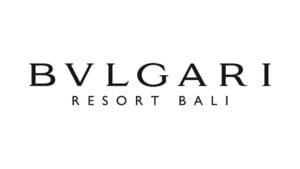
World-class Online Culinary Training
Industry-recognized programs to bring out the best in your team – and the best from your kitchen.
Up to 10 learners
Small Business
$249/month
A full curriculum for smaller teams that are ready to dive in and up-level their culinary training
Culinary Foundations program only
FEATURES INCLUDE:
FEATURES INCLUDE:
100% online with 24/7 access
Premium instructional videos
Interactive activities & quizzes
Team tracking
Q & A Support
FOR LARGER TEAMS
Enterprise
Starting at $165/month per location, unlimited users
Offering world-class training for larger organizations, often with multiple locations
Full Enterprise Content Library available
Full Enterprise Content Library available
ADDITIONAL FEATURES INCLUDE:
Chef Instructor & live grading
White labeling and branding
Third-party platform integrations
Double click to edit
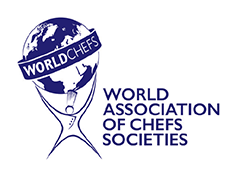
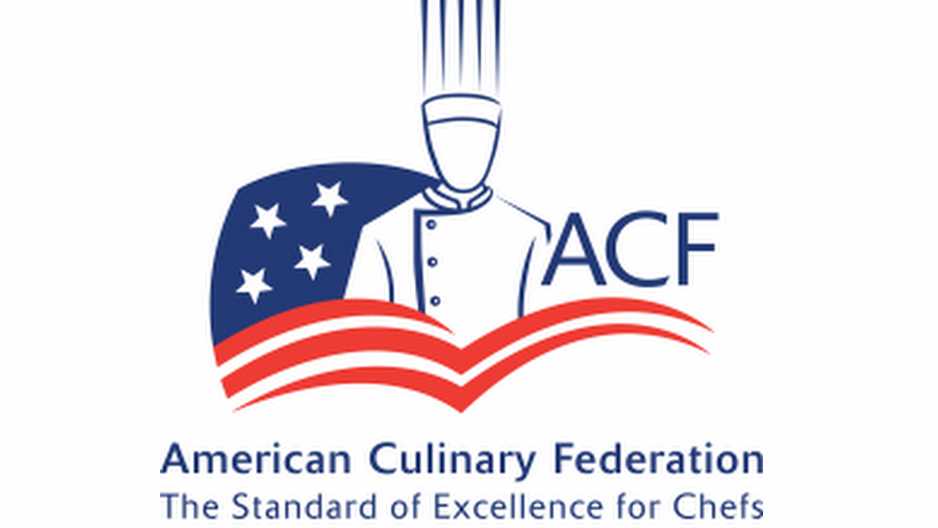
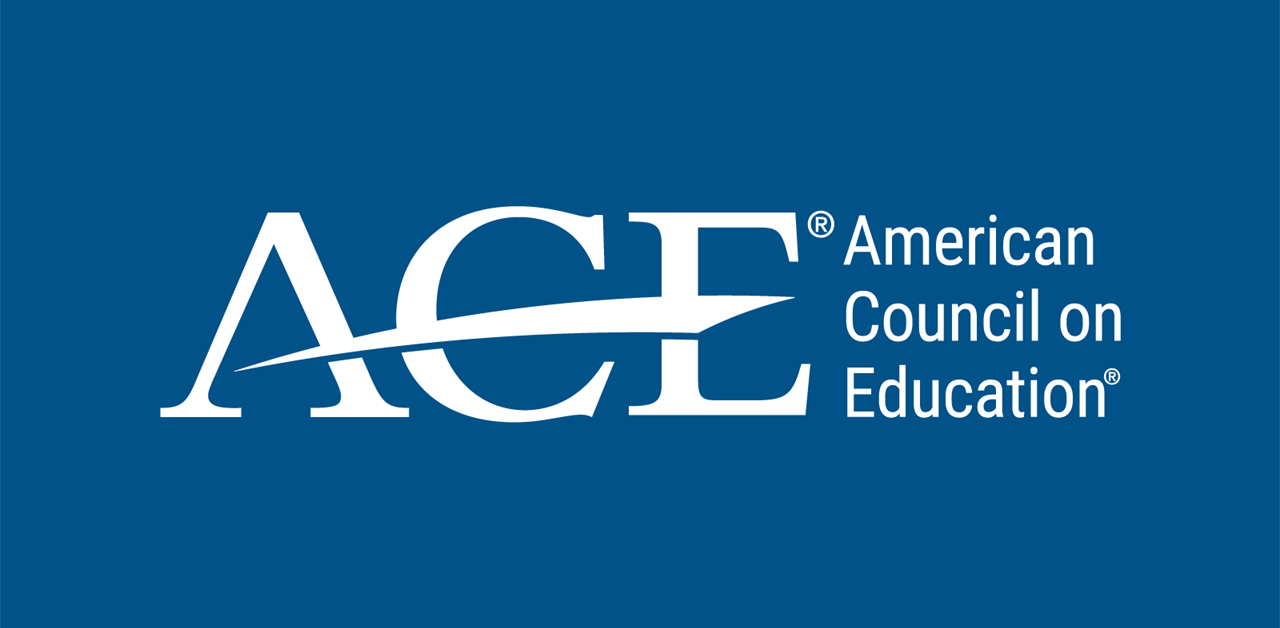
Bring out the best in your team with training solutions for hospitality, healthcare, educational, and restaurant organizations.
Industry-recognized
Recognized by ACFEF and WorldChefs as a quality program, college credit available
Customizable
White labeling, branding, content customization and third-party platform integrations available
Multilingual
Available in English, Spanish, French, Mandarin and Arabic
Program Pricing
Small Business
A full curriculum for smaller teams that are ready to dive in and up-level their culinary training
$249/month
up to 10 learners
Enterprise
Industry-recognized, certified training available to larger teams
Starting at $165/month
per location, unlimited users
Custom
Offering world-class training for larger organizations, with multiple locations and custom needs
Flexible Pricing
Platform
| Multilingual Learning | ✔️ | ✔️ | ✔️ |
| 100% Online with 24/7 Access | ✔️ | ✔️ | ✔️ |
| Team Tracking & Reporting | ✔️ | ✔️ | ✔️ |
| White labeling and Branding | ✔️ | ||
| Third-party Platform Integrations | ✔️ |
Learning Experience
| Premium Instructional Videos | ✔️ | ✔️ | ✔️ |
| Interactive Activities & Quizzes | ✔️ | ✔️ | ✔️ |
| Chef Instructor Support | ✔️ | ✔️ | ✔️ |
| Custom Content | ✔️ | ||
| Q & A Support | ✔️ | ||
| Certification of Completion | ✔️ | ✔️ | ✔️ |
| College Credit | ✔️ | ✔️ | ✔️ |
| Instructor Grading | ✔️ |
Enterprise Content Library
With over 200 hours of culinary, management, wellness, and safety training to choose from clients have access to the critical topics to uplevel their teams.
CORE
TRAINING
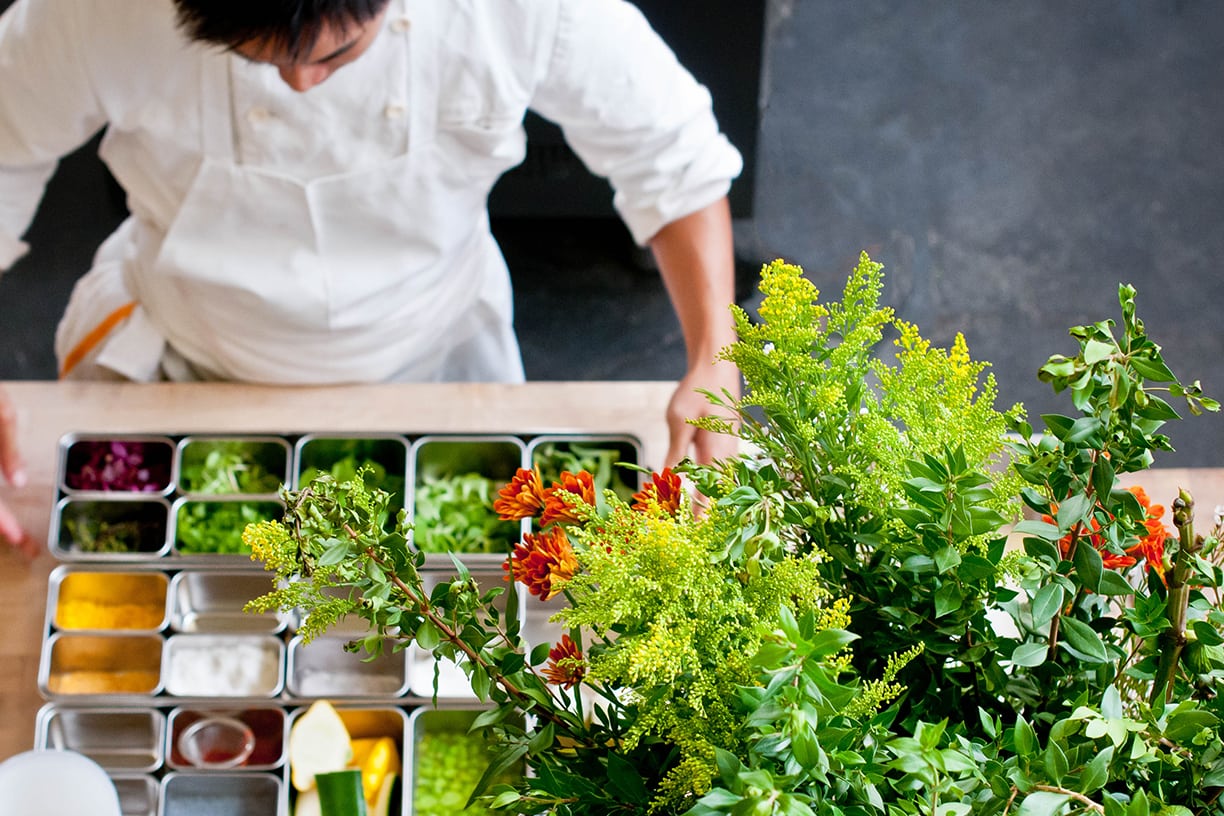
Culinary Foundations
Comprehensive culinary technique training for your kitchen staff, with a focus on universally taught and adopted culinary techniques taught in traditional culinary schools all over the world.
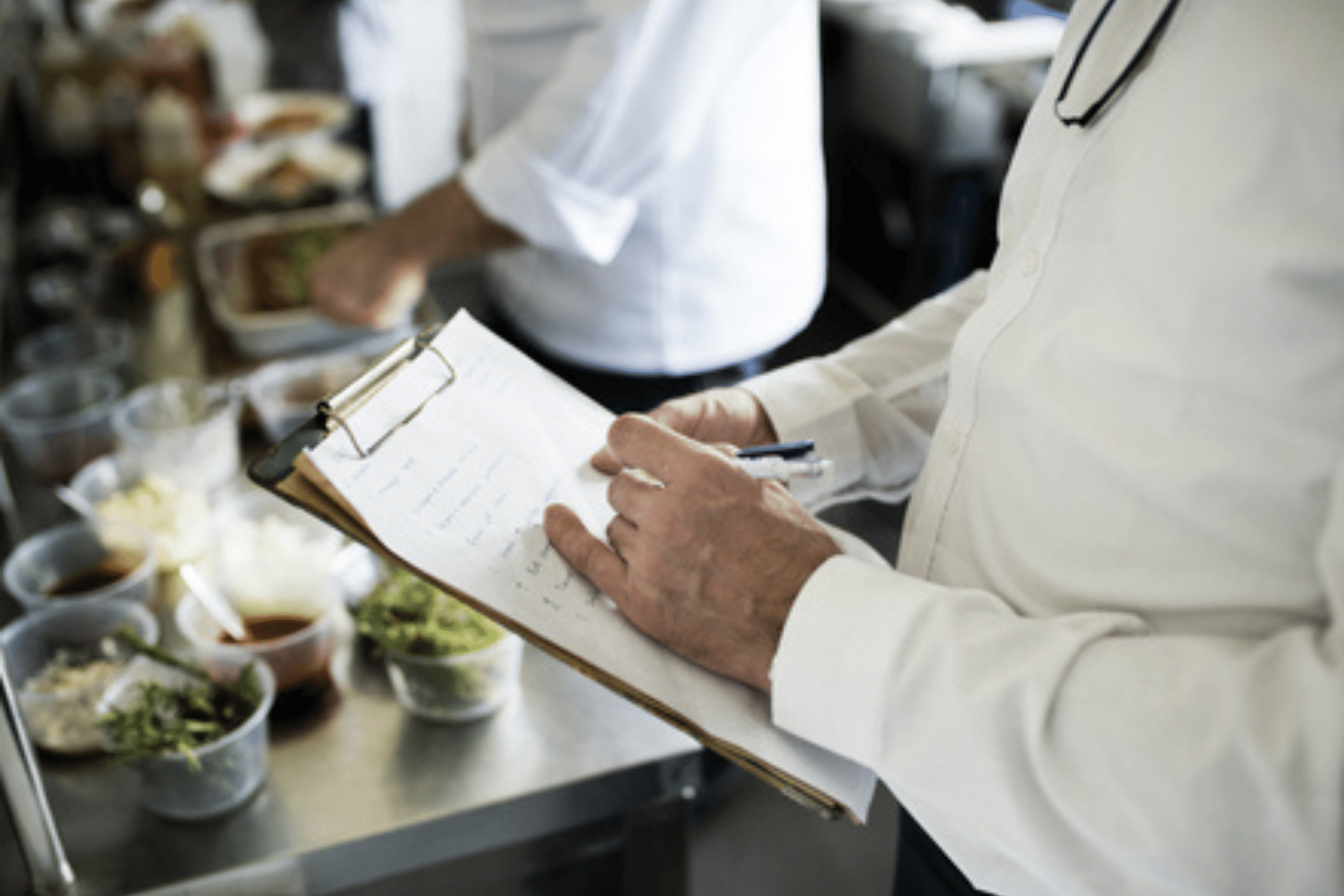
Kitchen Management
Program that covers supervisory management, dining room service, food cost accounting, menu planning, and beverage management.
PLANT-BASED
TRAINING

Plant-based Pro
Developed with world-renowned chef Chad Sarno, this is the most comprehensive plant-based course ever created.

Plant-based Foundations
Core techniques and concepts to support cooking with and featuring plant-based proteins and non-dairy substitutes, as well as cooking for restricted and special diets, recipe and menu development, flavor balancing, layering and seasoning, raw gastronomy – and much more!
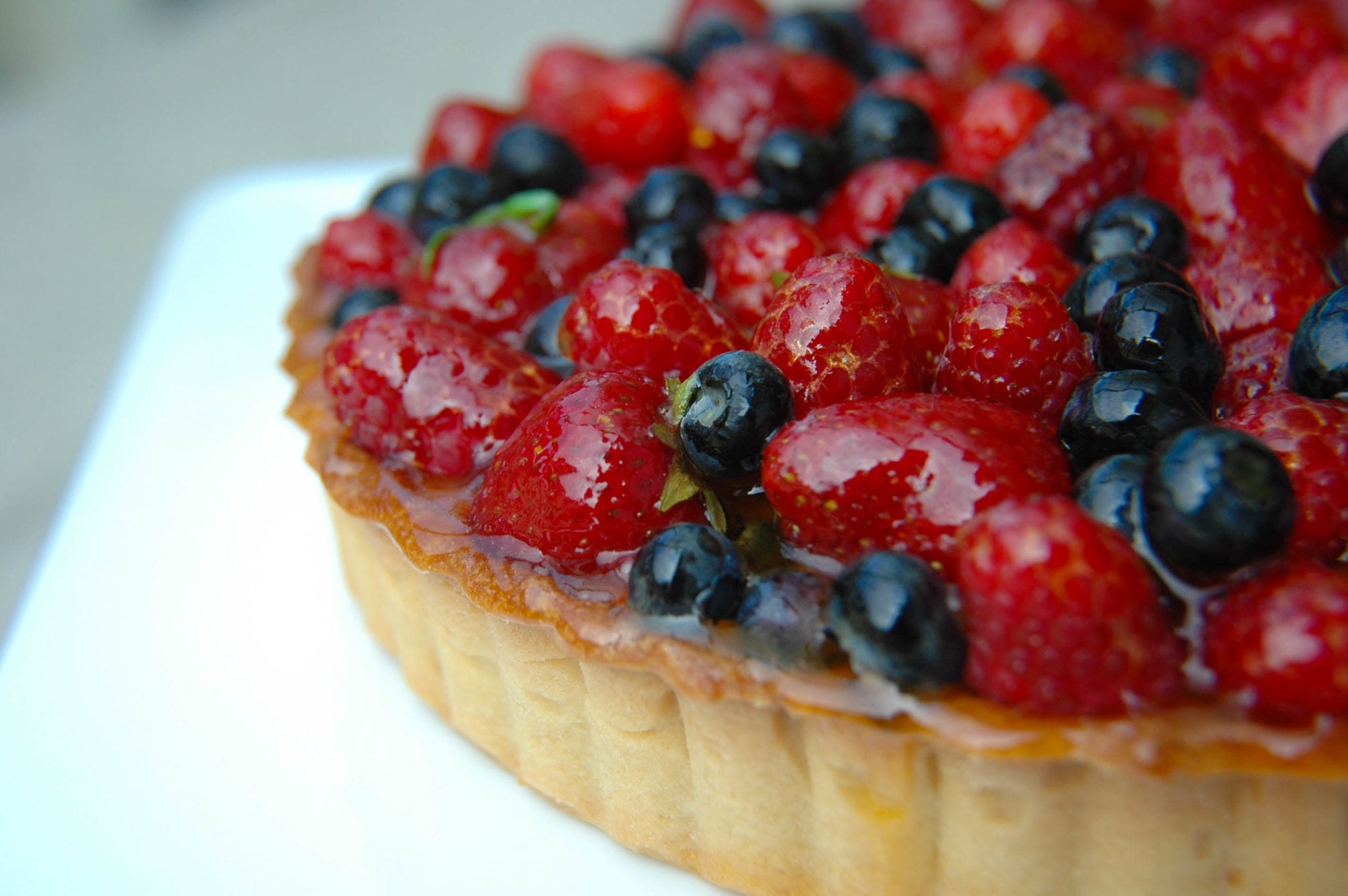
Essential Vegan Desserts
Transform traditional desserts with egg- and dairy-free alternatives by learning key techniques and recipes from vegan pastry chef Fran Costigan.
SPECIALTY
TRAINING
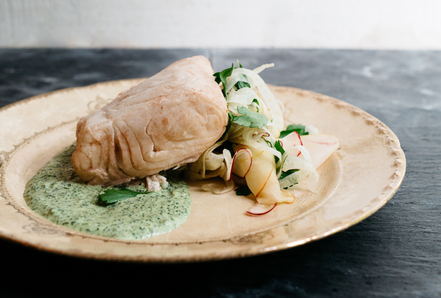
Seafood Literacy
An advanced online program created with Barton Seaver to provide an understanding of aquaculture and sustainable practices in and out of the kitchen, the primary culinary categories of fish and seafood, proper handling and fabrication of various forms of seafood, and how to best apply culinary techniques to make the most of the seafood on your menu.
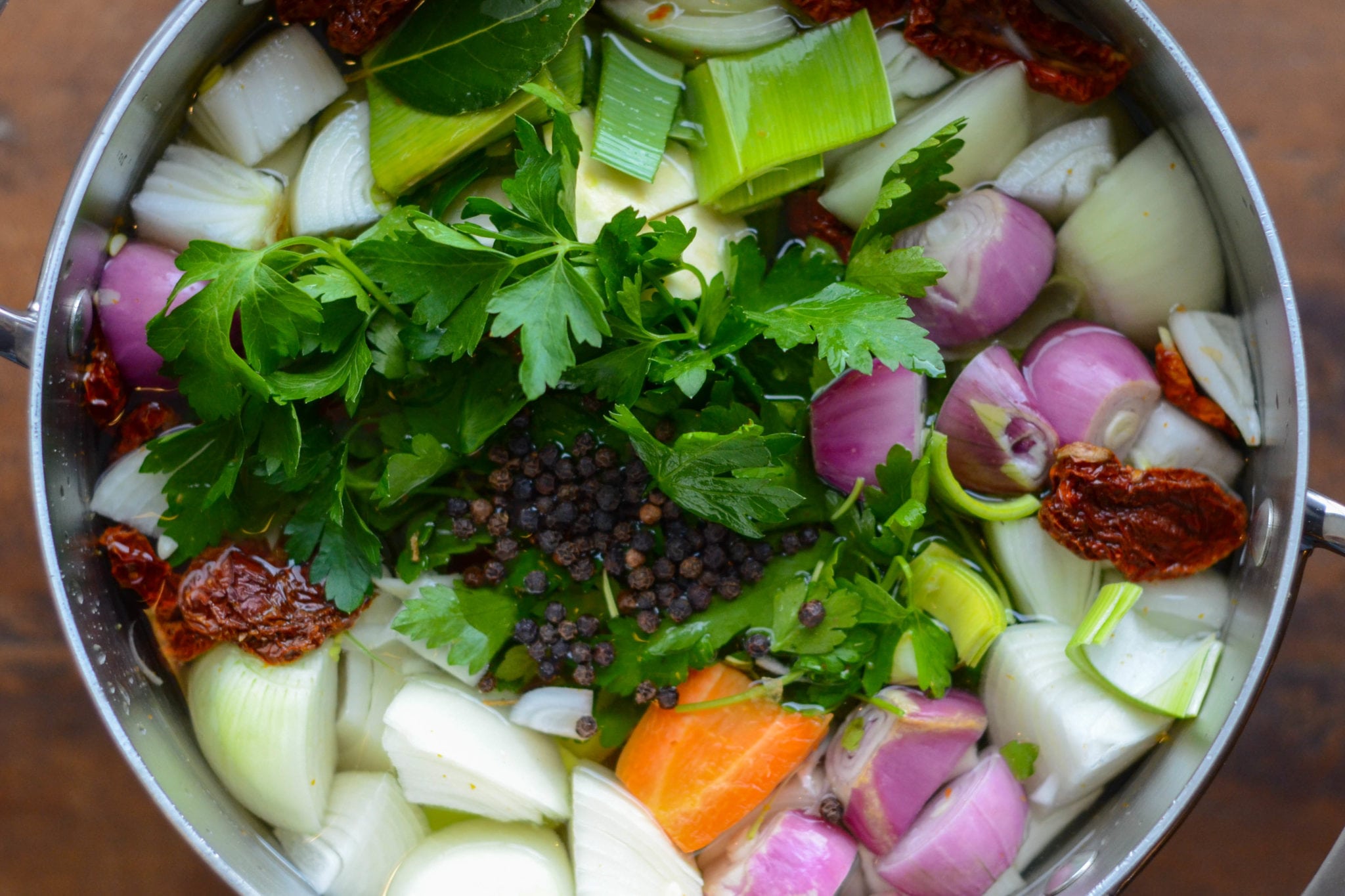
Food Waste
The course and initiative, Waste Not, with the James Beard Foundation to equip and help advance efforts toward more sustainable industry practices, introduce technical and creative approaches to addressing food waste and examine methods of reducing food loss along the supply chain.
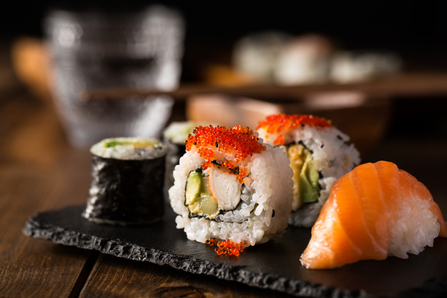
Mastering Japanese Sushi Foundations
This course is complete with 80 technique videos and is designed to teach the basic skills and knowledge of how to make sushi rolls and nigiri sushi at a professional level.
WFSO
TRAINING
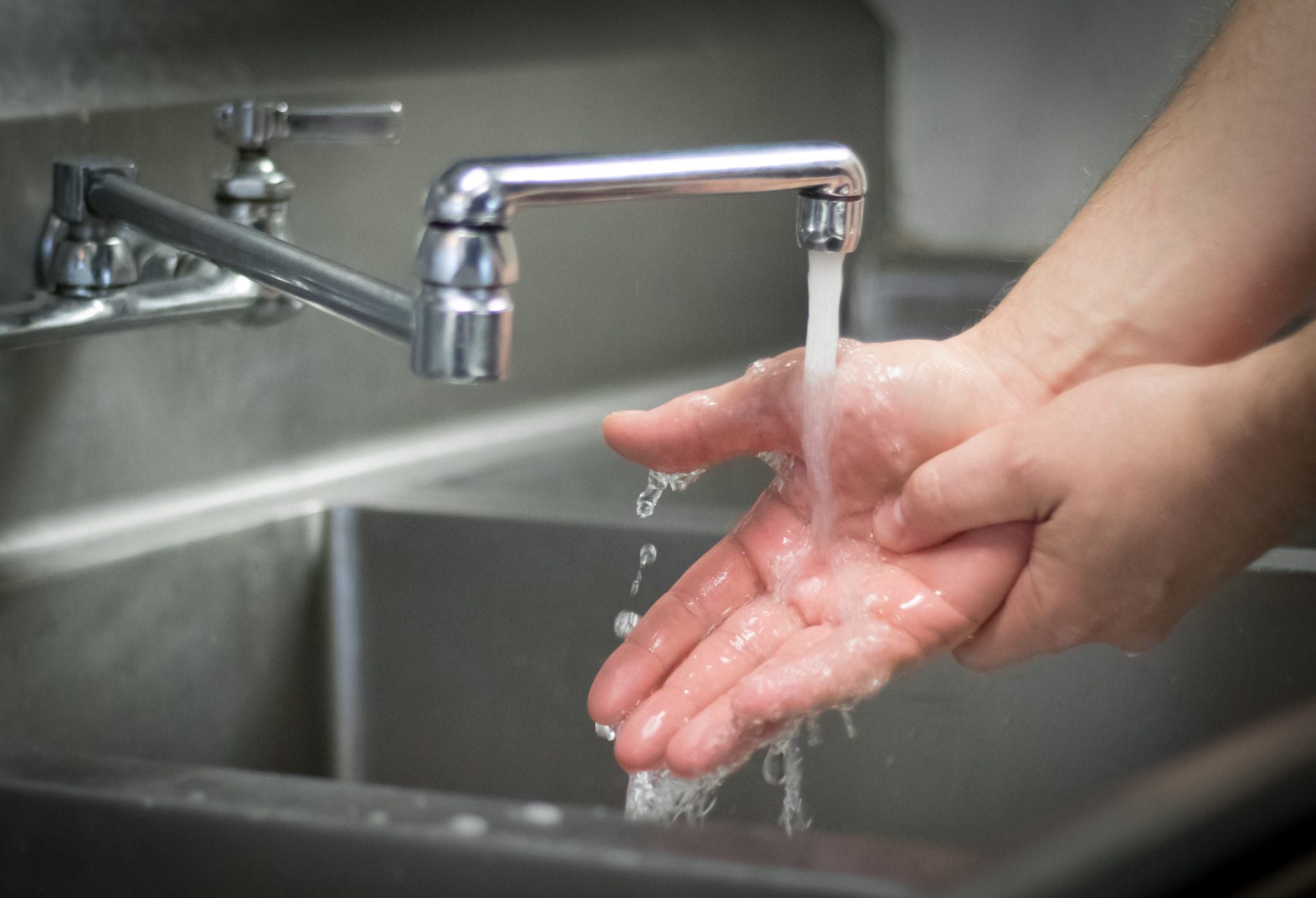
WFSO Safe Food Handler
A 2-hour, self-paced course will result in a certificate demonstrating the knowledge needed to be a Safe Food Handler.
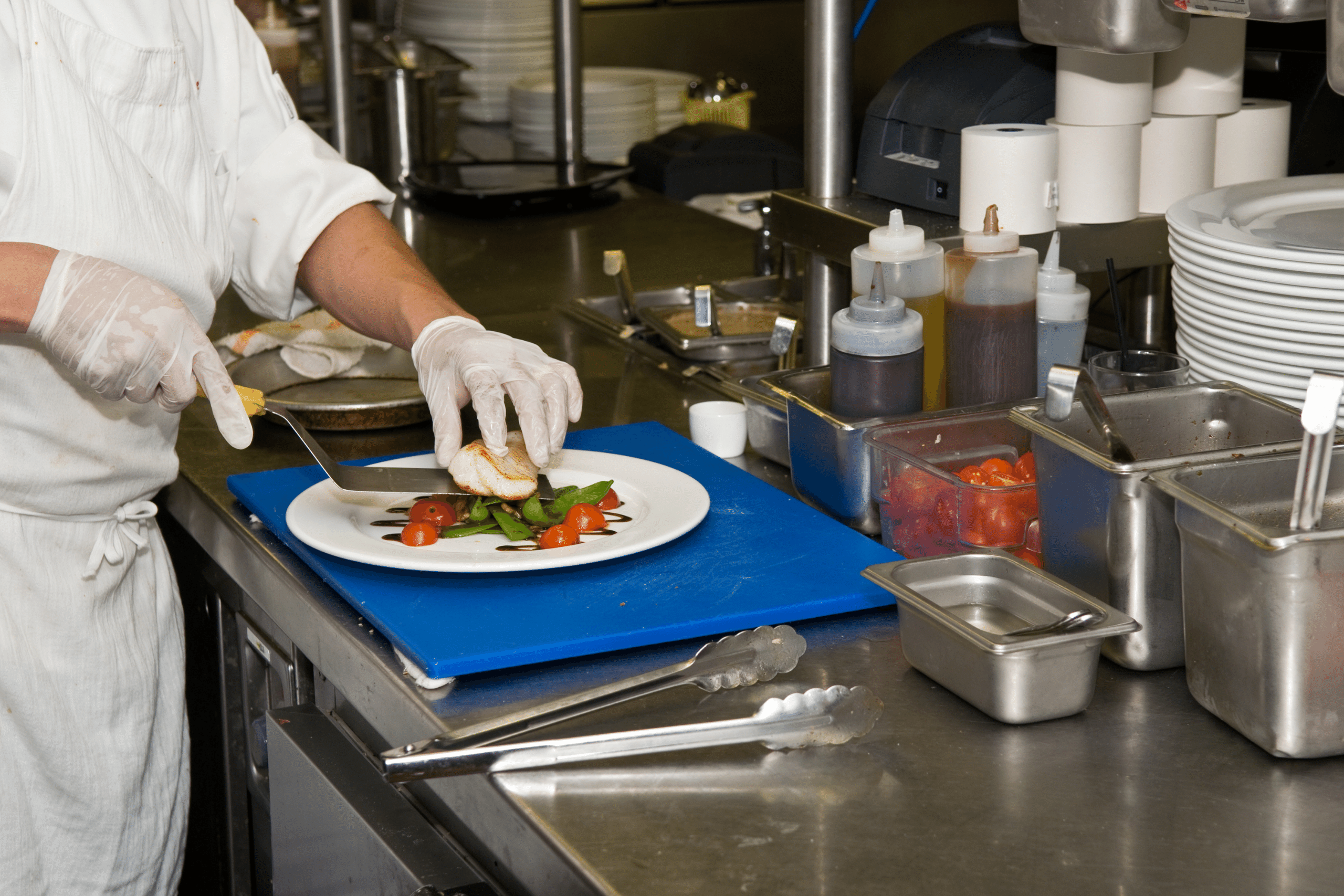
WFSO The Essentials of Food Hygiene
A comprehensive course
covering information on
food safety and sanitation.
A 9-hour course outlining
the principles of keeping
food safe.
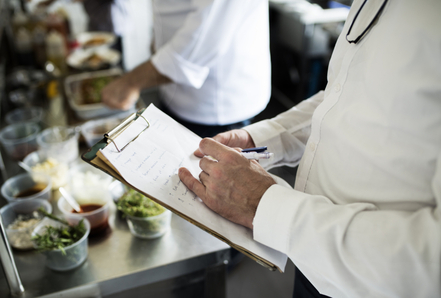
WFSO Food Protection Manager
A 4-hour review to prepare
the student for the WFSO
Food Protection Manager
Exam and Certification.
BAKING & PASTRY
TRAINING
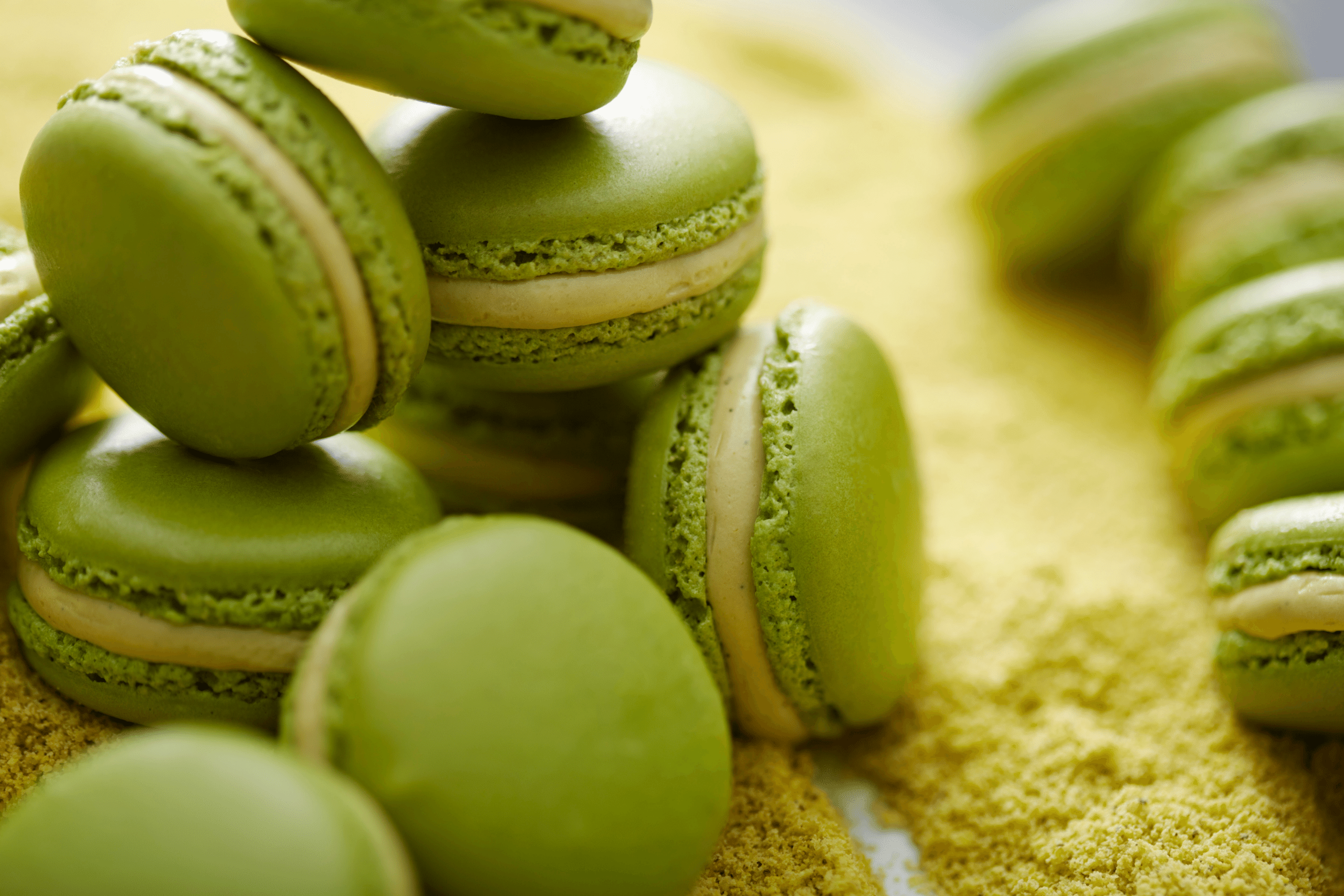
Introduction to Baking & Pastry
Developed by the esteemed team of chef educators at The French Pastry School, this course will cover the basics of pastry, baking, and cake decorating.
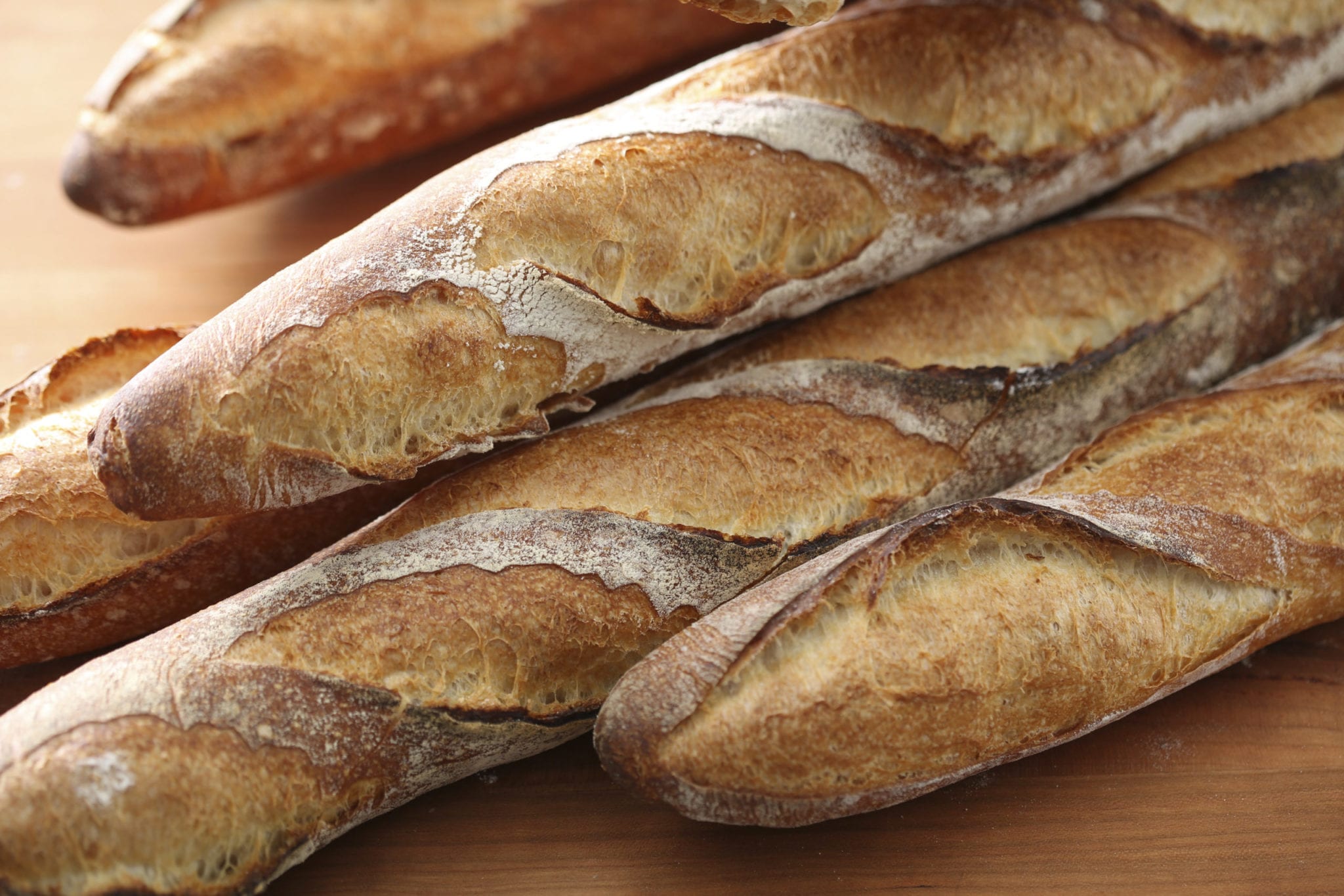
Bread Baking Arts
Developed by the chef educators at The French Pastry School, this course provides an in-depth look at quick breads, artisan breads, and breakfast pastries!

Cake Baking & Decorating Arts
Developed by the esteemed team of chef educators at The French Pastry School, this course dives into cake baking and decorating at the highest standard.
HEALTH & WELLNESS
TRAINING

Blue Zones Cooking Course
Inspired by the recipes of the best-selling Blue Zones Kitchen cookbooks, Dan Buettner leads you through a step-by-step course full of plant-forward recipes.
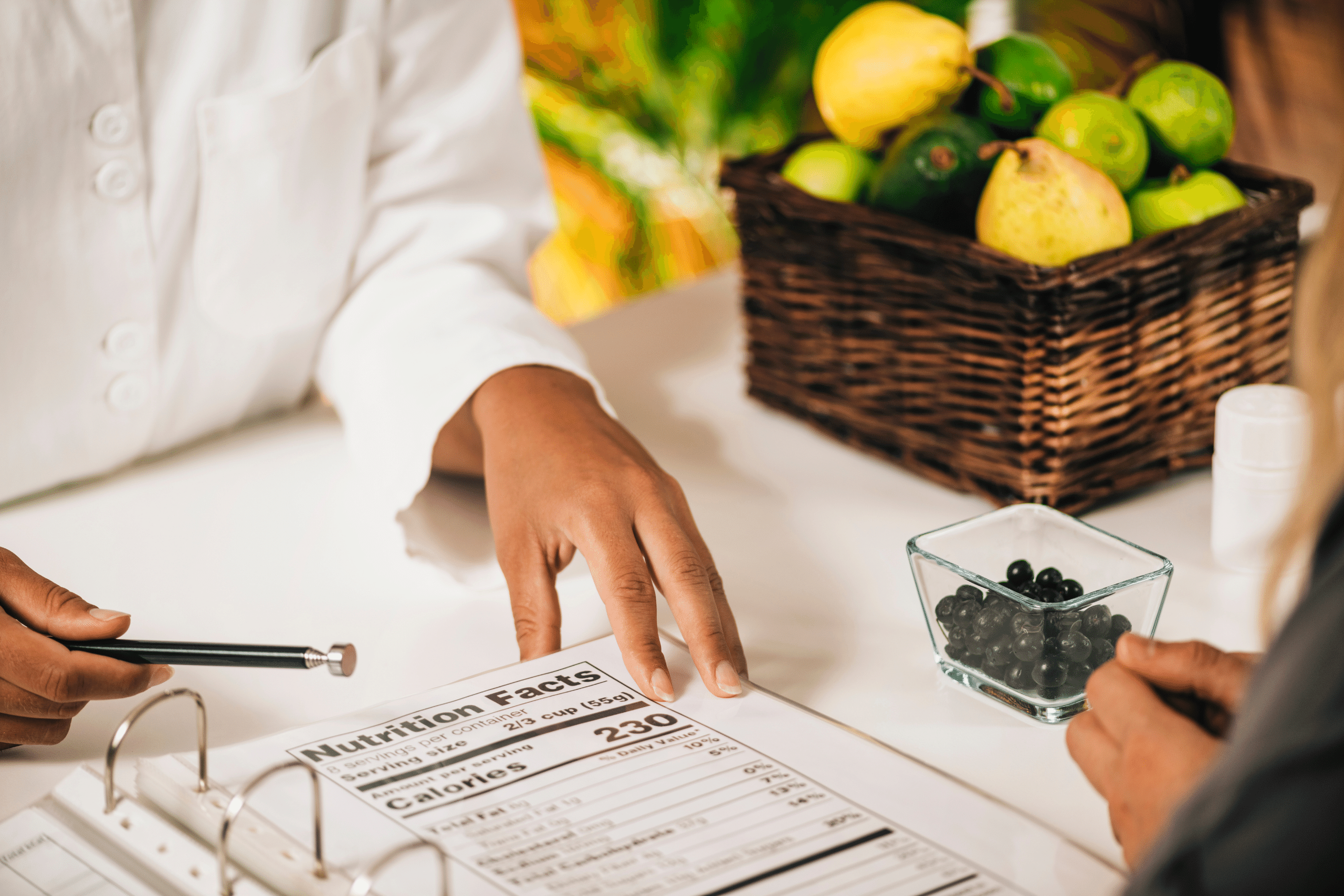
Culinary Rx
This course provides the tools, resources and culinary confidence to help manage health and wellness through food and cooking.
APPRENTICE-SHIP
PROGRAMS
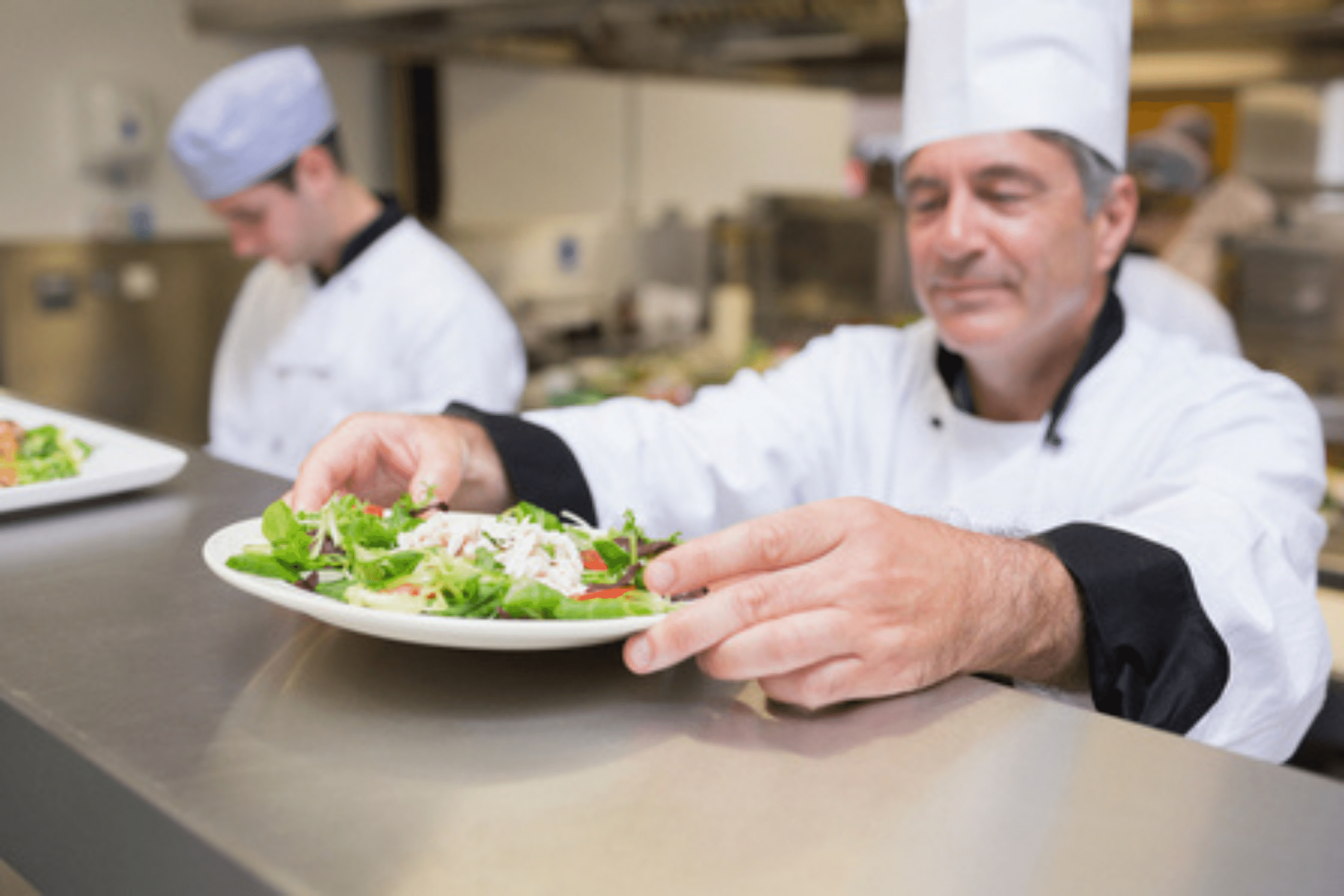
Certified Fundamentals Cook (CFC)
A minimum of 1,000 hours of on-the-job learning and 90 hours of related instruction. The apprentice can earn their ACF Certified Fundamental Cook or ACF Certified Fundamental Pastry Cook credential after completing the program and exams.
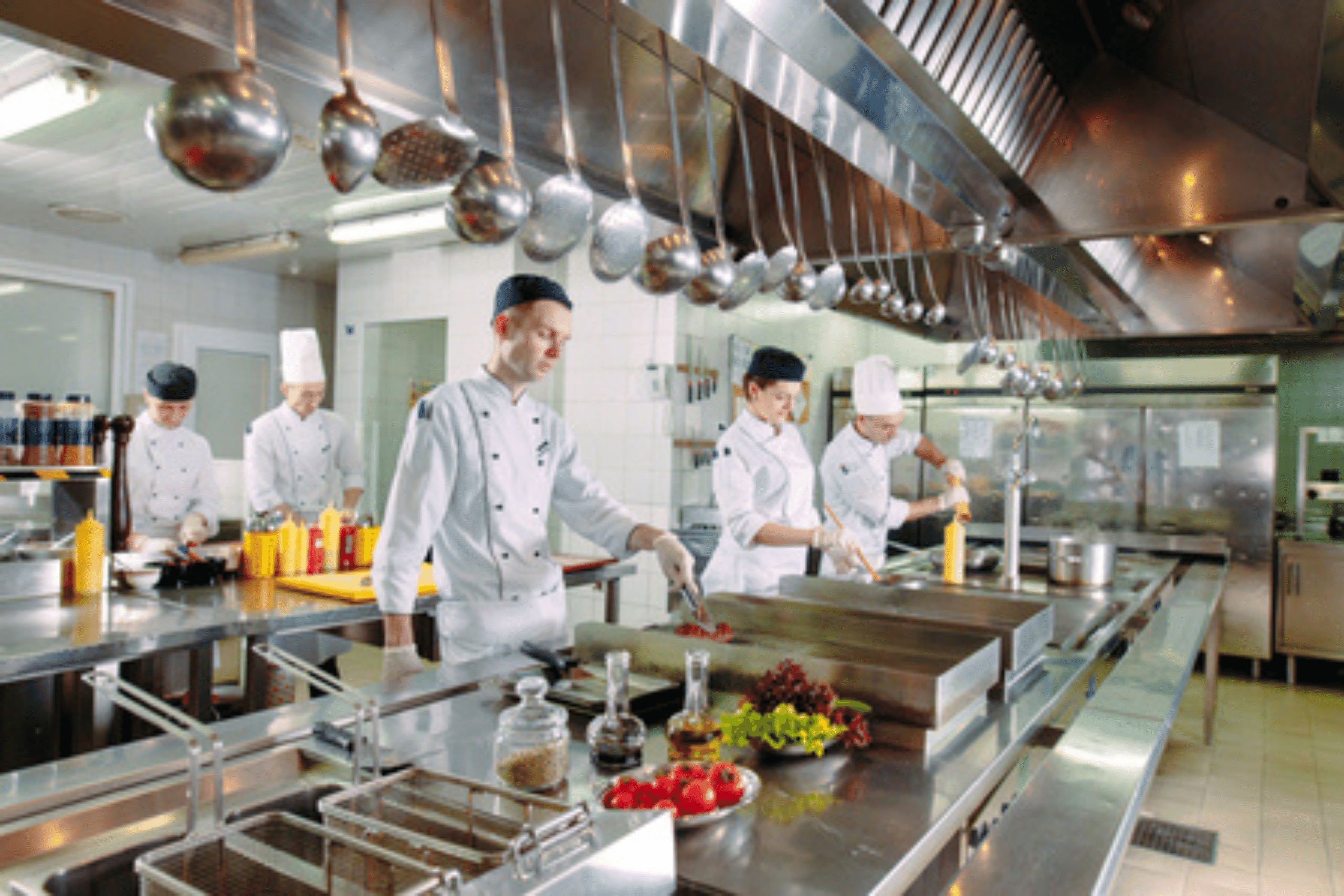
Certified Culinarian (CC)
A minimum of 2,000 hours of on-the-job learning and 240 hours of related instruction. The apprentice can earn their ACF Certified Culinarian or ACF Certified Pastry Culinarian credential after completing the program and exams.
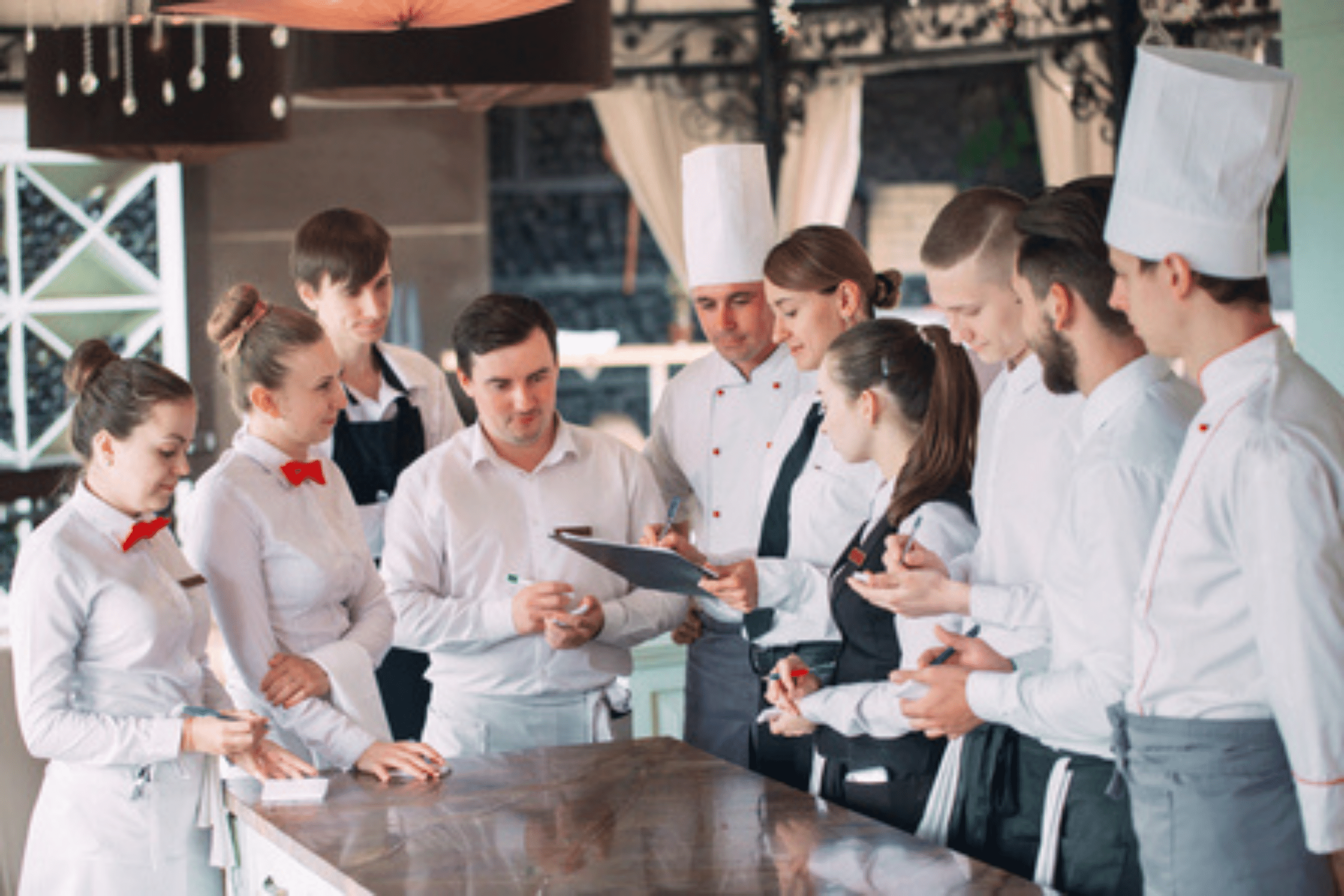
Certified Sous Chef (CSC)
A minimum of 4,000 hours of on-the-job learning and 480 hours of related instruction. The apprentice can earn their ACF Certified Sous Chef credential after completing the program and exams.
How Rouxbe works in professional kitchens worldwide
An Overview
A Look Inside
Features
Program Customization
In addition to providing online culinary training we can upload and host company-specific content ranging in topic, accommodate your branding specifications, integrate with other platforms and offer learning paths if needed.
Reporting & Program Evaluation
For multiple property clients, reports can be generated by month, by property and/or property region, and even by brand (if applicable) indicating new locations as they join the program, aggregate month-by-month summary of engagement, course completions and student evaluations.
Assessments, Certifications & College Credit
Assessments provide employees with feedback and a sense of professional development as they progress through the course. Automated Rouxbe-graded assessments include online quizzes, text and photo submissions and we encourage live-graded activities where cooks demonstrate competencies to kitchen supervisors.
Health & Wellness Training
Our curriculum covers traditional professional cooking school material and also teaches next generation cooks nutrition and dietary concepts that meet the demands of today’s health conscious clientele.
Testimonials
“Culinary training is a combination of hands-on experience and engaging content. Rouxbe has developed a cost-effective and globally relevant platform that enables us to deliver both elements in our efforts to advance the careers of our culinarians.”
- Brad Nelson, VP, Global Food & Beverage, Culinary, Marriott International
"With their long track record of teaching students online, along with their stellar reputation, Rouxbe is the perfect match to bring Jacques’ wealth of culinary content to the world."
- Rollie Wesen, Executive Director, Jacques Pepin Foundation
"Rouxbe has a proven track record of providing a solid culinary education online, and we believe the platform will provide even more opportunities for students to learn fundamental pastry skills to help them both establish and enhance their careers."
- Sebastien Cannone, MOF, President, French Pastry School
“Once it was mandated that classes be taught online this fall, we realized that courses with lab requirements, like our culinary programs, would be especially hard to recreate and set out to find a solution. By working with Rouxbe, we are able to teach and support our students effectively.”
- Audrey Le Baudour, Regional Director - Employer Engagement, California Community Colleges
"Rouxbe has created an exceptional culinary training tool that can reach aspiring chefs on a scale not previously thought possible."
- Marcus Samuelsson, Award-winning author and Chef
"We are excited to provide VWU students access to the Rouxbe platform, and all of the benefits the program provides. Our students who complete the program will be well-versed in culinary foundations, along with more recent trends in the professional kitchen, including plant-based dining, limiting waste and ensuring the seafood being served is sourced sustainably."
- Dr. Scott D. Miller, President, Virginia Wesleyan University
"Never in my four decades of culinary education have I seen a resource with Rouxbe's potential to transform the way students learn."
- Richard Grausman, C-CAP founder and James Beard Award Winner
"We are always looking to upgrade our food and beverage offerings for our valued guests, and to do that, we have to provide exceptional training programs for our culinary associates. Rouxbe is the best solution, as the self-paced online platform and culinary training curriculum is ideal for our staff who come to us with different levels of experience. Each course comes with lessons that our employees can immediately apply to their jobs."
- Eric Shoemaker, Corporate Director of Food & Beverage, Cherokee Nations Entertainment
What Our Clients Are Saying
99%
Think Rouxbe would be helpful as a training resource
96%
Recommend Rouxbe as a training tool
85%
Think Rouxbe is better or way better than training offered on the job